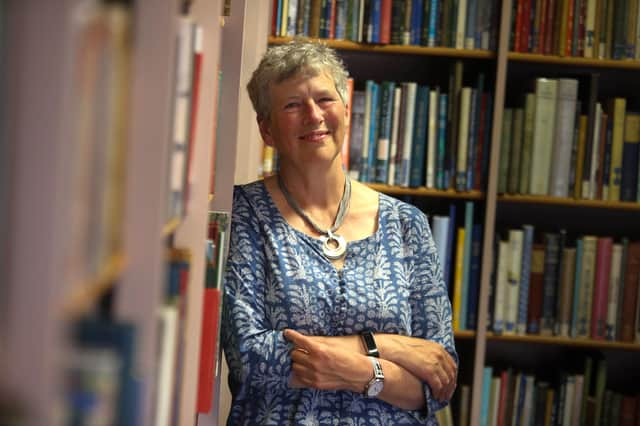Spotlight on Orcadian as language champion appointed


Writer Alison Miller has been appointed as the ‘Orkney Scriever’ by the National Library of Scotland and will work on the islands to get people writing in their native tongue. Ms Miller will also produce new work in Orcadian
The one-year residency was created to celebrate the richness of the Orcadian dialect and acknowledge the islands as a stronghold for the Scots language.
Advertisement
Hide AdAdvertisement
Hide AdMs Miller said: “A’m ferly plaesed A’m been meed Scots Scriever fir Orkney this year. Hid is right grand tae think A’ll hae more time tae spend wae fokk that spaek Orcadian an want tae write in wir mither tongue – the parteeclar language o the Northern Isles.
She added: “Skreever’ in Orcadian is a howlan gale – a good wind tae hae at me back fir me own writeen.”
The term Orcadian is used in English to describe the dialect but it is also known as Orkney in Scots.
Today's Orkney dialect, like that of Shetland, features many Norse words and turns of speech. Orkney dialect differs from Shetland in that Shetland follows Nordic stress patterns whereas Orkney has a rising intonation akin to Welsh or Irish.
According to the Scots Language Centre, the language of Orkney was a variant of Norse known as Norroena (or Norn in Scots) for 1,000 years.
The distinctive qualities of the dialect spoken in the islands today derive from this sister language of Faroese, which too developed from Norse brought in by settlers in the 9th century, and from Icelandic.
Direct Scots influence on Orkney really began from the 1330's when the earldom passed into the hands of Malise, Earl of Strathearn and Norn was steadily eroded as a language of governance.
Ms Miller writes in both Orcadian and English and is the author of ‘Demo’, a coming-of-age novel about a Glasgow girl during the lead-up to the Iraq war.
Advertisement
Hide AdAdvertisement
Hide AdShe has also written short stories, essays and poetry reflecting on life in Orkney, island life, language and literature.
Alan Bett, Head of Literature and Publishing at Creative Scotland said: “The placement of the Scriever in Orkney this year and the focus on the Orcadian language is an exciting shift for the residency.
"Alison Miller is a fantastic appointment and her long track record of working in Orcadian will ensure the richness of the language is celebrated, not only through a programme of public engagement, but also through the creation of new and original written work.”
Karen Walker, Team Leader at Orkney Library & Archive, where the residency is partly based, said: “We are delighted that Alison Miller has been appointed as our Orcadian Scots Scriever. She has a wealth of experience of writing in and speaking Orcadian which will allow our dialect to reach a wider audience and help preserve Orkney’s rich cultural heritage.
Dr John Scally, National Librarian, said: “Alison Miller has demonstrated her passion and experience of Orcadian, with a strong track record as a writer, creative writing facilitator and event host.
"She has spent her life promoting Orcadian and uses the language across several mediums, and we are all looking forward to working with her throughout her residency.”
